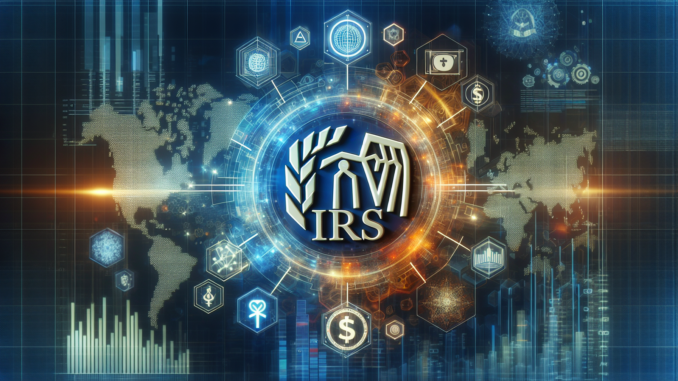
The interest of the Internal Revenue Service (IRS) in cryptocurrencies has caused a stir in the crypto community. With the announcement to intensify the monitoring of transactions on centralized exchanges (CEXs), the IRS is showing that it is increasingly concerned with the tax aspects of digital assets. But what does this mean concretely for crypto users in 2025 and beyond?
The IRS focuses on monitoring crypto transactions
The IRS has announced that it will intensify its efforts to monitor cryptocurrency transactions on centralized exchanges. This decision signals that the IRS is determined to use digitization and technology to ensure that all taxable transactions are correctly reported. Cryptocurrencies, which have a decentralized nature, pose an increasing challenge for tax authorities worldwide, which is why monitoring such transactions is intended to ensure clarity and fairness in the tax system.
The background: Why now?
The growing popularity of cryptocurrencies has led to huge transaction volumes, often conducted anonymously. In recent years, the U.S. government has taken steps to regulate the crypto market, and the IRS has been a major player in this development. Regulators are concerned about tax evasion and illegal activities related to unregulated crypto transactions. Enhanced monitoring is an attempt to address these issues in order to maintain the integrity of the financial system.
Major development: Centralized exchanges in focus
Centralized crypto exchanges, also known as CEXs, are at the center of IRS investigations. These platforms allow users to buy and sell cryptocurrencies such as Bitcoin and Ethereum and possess information about the identity of users as well as their transactions. The IRS plans to gain access to more comprehensive data on crypto transactions by collaborating with these exchanges to ensure compliance with tax regulations.
Analysis: Impacts on the crypto market
Increased monitoring by the IRS could have far-reaching effects on the crypto market. On one hand, this could lead to higher transparency and more legitimate use of these digital assets. On the other hand, the anonymity that many users seek in cryptocurrencies could be threatened, which could reduce the attractiveness of this technology for some. Additionally, improved compliance by crypto users is likely, as people will try to comply with increased monitoring to avoid tax penalties.
An outlook on 2025: What does this mean for crypto users?
By 2025, the crypto market could change significantly. The IRS measures are an indication that cryptocurrencies are being integrated into the mainstream and could gain the same regulatory traceability as traditional financial instruments. For crypto users, this means that they need to be more aware than ever of their tax obligations and be prepared to provide complete and accurate reports to tax authorities. Nevertheless, this development also offers an opportunity: the long-awaited legitimacy and stable legal foundation for cryptocurrencies.
In summary, the IRS’s announcement represents an important step in the evolution of cryptocurrencies by laying the groundwork for a more regulated and recognized financial system. It remains to be seen how these measures will impact the long-term success and adoption of cryptocurrencies worldwide. The coming years could be crucial to see if the crypto community adopts new standards and adapts to the evolving regulatory landscape.
Leave a Reply